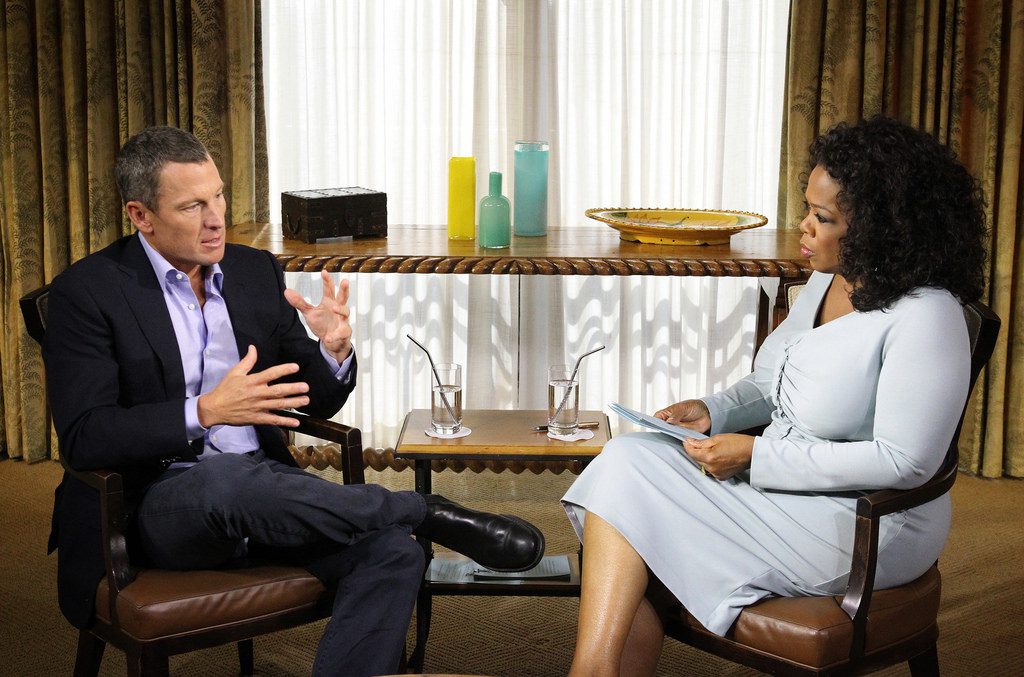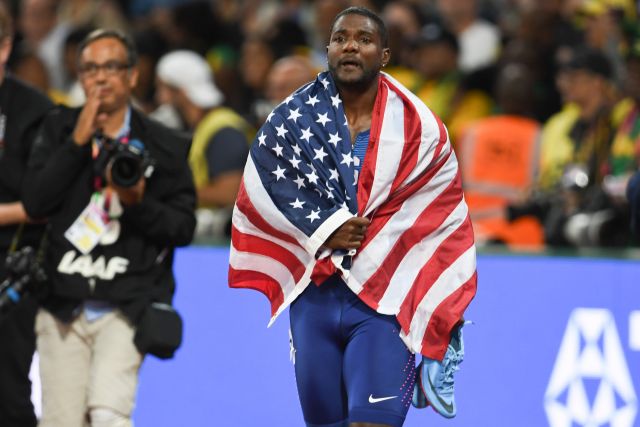By: James Stout
HBO recently launched a mockumentary special on the Tour de France. It was called “Tour de Pharmacy” and it was pretty funny. But….it also feels like the jokes aren’t as precisely targeted as they could be. Especially to someone who used to get paid for racing a bike ( (I would say “who made a living”, but at 16k per year that would be stretching it. Yes, I wear a lot of spandex).
The butt of the joke seemed not to be doping in sport, which is entirely endemic in the more masculine-coded sports mentioned, but rather cycling and specifically masculinities within it. The theme running through the whole program seemed to be “can you believe these (skinny) guys are doping?” The characters cast as cyclists are either effeminate men, spoilt rich kids, or comically muscular, presumably to stand in contrast to the “upper bodies of aliens” found on real cyclists (my partner laughed for a solid ten minutes at this).
This got me thinking about how doping is perceived by the public, and how this perception varies a great deal based on the sport and the athlete in question. Are more traditionally masculine sports (those which are closer to physical combat, which are covered in the sports media and which are taught in schools) seen differently in terms of doping?
Is it ok to cheat to get big and strong, but not to get lean and fast?
The question
Are doping and sexuality viewed differently in more masculine-coded sports than they are in sports which don’t conform to American perceptions of manly-man physical activity?
The short-short version
We seem to conflate doping with moral deviance, and in a heteronormative sports world the highest form of moral deviance is having the temerity to love someone with the same equipment as you. Sports fans did perceive endurance athletes who doped as “cheats” a more than power based-athletes who did so, but what was more shocking was the frequency of searches specifically about the sexuality of known or suspected dopers.
It seems that my hypothesis was somewhat valid, the skinny men in tight clothes just don’t fit in with the sports bar crowd, so a significant number of Americans deduce that they, therefore, must be gay. And how about (actual) gay men in sport? That seems like it shouldn’t be an issue, but apparently it is, far more so than, say, domestic violence. Sports fans seemed to search much more for information about Jason Collins’ sexuality than they did about Ray Rice’s ban.

Really, really sorry. Trust Oprah. Source: LWP Komunikacio (Flickr).
The methodology
Just like anyone under a certain age, I turned to Google for the Truth. Google Trends was pretty helpful in helping me see racism amongst fans of the NFL, so I figured that I could use it to snoop on our attitudes to doping as well.
Perhaps, I hypothesized, we would be less condemning of doping in sports where it seems to fit with the narrative of all-out war. Certainly nobody bats an eyelid when WWF wrestlers, bodybuilders, or other actors, use drugs to achieve an aesthetic that fits with the hyper-masculine roles the often portray. So, I thought, as we get further from that aesthetic do we see doping as more reprehensible?
In order to investigate this, I began with a pretty benign query, but one that perhaps gets to the heart of doping and its vilification, I looked for incidences of the word “cheat” with various athletes. I tired searching with a selection of cycling’s favourite dopers: Landis, Basso, Di Luca etc but they were all shuffled off the end of Google Trends’ 100-point scale by a certain attention-hungry Texan who happened to be part of that very same HBO special.
So I decided to compare Lance to some of the other great American dopers, baseball’s Barry Bonds and Alex Rodriguez. Just for laughs, and for current events, I tossed in sprinter Justin Gatlin.1 When I was done with that, I started throwing in some of the more colourful language you might hear about in the proverbial sports bar that I mentioned in the first piece of this series. I wasn’t able to turn up much with “pussy”, “pune”, or even “fag”. But when I searched “gay”, things got a lot more interesting. I ran queries for the same 4 athletes with the word “gay” and the word “cheat” and then compared the results.
The results
Some take homes from my “cheats” query were not hugely surprising:
Hover for details. Select query to highlight.
- It really doesn’t help your case to beat Usain Bolt in the last race of his career
- Doping really isn’t cheating in baseball
- If you REALLY want attention, and don’t mind admitting to cheating, Oprah can help you. Be prepared to cry.
We see very little attention paid to Gatlin at the time of his second positive test in 2006. When we see the massive spike in queries about Gatlin, it is because he beat Usain Bolt in the last race of the charismatic all-time great Jamaican sprinter’s career. Undoubtedly, nobody wants to see the fastest man in the world go out that way, but the relative spike is striking. We also see that nobody really seems that concerned about Barry Bonds or A-Rod. Because, apparently, baseball is for tough guys and tough guys need to be big guys so steroids make sense. Finally, we see that Lance Armstrong’s queries step up as allegations snowballed until they peak around the month he made his confession to Oprah Winfrey. So, we know who cheats, it’s the skinny guys. The Internet Has Spoken.
Hover for details. Select query to highlight.
What I found from my “gay” query was even more interesting. There was a huge spike in incidences of searches about Armstrong’s sexuality around the time of his retirement. It should be pointed out that Lance has five children and has been in long term public relationships with 4 different women during his career. None of this means he isn’t gay, and coming out as a professional athlete would be very difficult, but there seems to be no indication that Lance is anything other than a straight dude from Texas. There’s something inherently troubling to heteronormative masculinity about an athlete not looking like a powerlifter, a man shaving his legs and the very existence of spandex.
Gatlin’s case seemed more interesting. We see a spike in the summer of 2012, when he won the US trials and scored a bronze medal in the London Olympics. In May 2015 Gatlin set a new Personal best of 9.74 seconds, the fastest time since 2012. In August 2016, Gatlin ran in the Rio games and received a silver in the 100 meters. In August of this year he caused quite an upset by beating Usain Bolt in the final of the World Championships in London. His best performances seem to always carry a spike in the modifier “gay”. I hypothesized this might be due to a culture in Jamaica which can be homophobic and might be using “gay” as a term of abuse. But google found nearly all of these searches in the USA. Then I worked it out, the search is not case sensitive, so we can thank Tyson Gay some (unknown) large part of those.

Literally wrapping himself in the flag did not bring the love. Source: Erik van Leeuwen (Flickr).
Sport and sexuality
Sport remains a very masculine space. Women are paid less and valued less for their contributions to it. It also remains a very homophobic place. It was not until April 2014 that Jason Collins became the first openly gay athlete to play in any of the major sports leagues in the USA. I wanted to look at how Collins, as a man who transgressed sexuality norms in pro sports, was treated. So I decided to compare him to Ray Rice, a man who transgressed very basic social norms like not beating up your partner.
Hover for details. Select query to highlight.
I found that, support for Collins in searches outweighed abuse (I compared the term “support” to “faggot”) but that, in general, more people wanted to search for info on Collins than Rice. It seems that who you sleep with matters more to sports fans than whether or not you beat them up afterwards.

Sexuality: more important than domestic violence. Source: Mariselise (Flickr).
What’s next?
Since my last piece on Colin Kaepernick, several more NFL players have decided to stand, or kneel, with him, as well as a group of New York City policemen. I think this illustrates the value of sports in fighting racial prejudice. We’ve also seen the apparent return of the Nazi party and the Confederacy to the US political scene, so there might be some fruitful investigation to be done there.
Note:
1 It should be noted that our vilification of Gatlin is somewhat misguided. Yes, he fell foul of the strict liability to which all athletes are bound, but he did so for taking a ADHD medication that he had taken since childhood, a second time, for a testosterone cream which may have been applied by a massage therapist.^


No Comments on "What we think about sports cheating tells us a lot about what we think about gender, race, and sexuality"